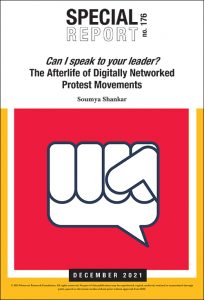The President of Iran, Mahmoud Ahmadinejad, has earned the ire of the world by his much publicised remarks about the Holocaust. His logic is convoluted; his indiscretion has not gone un-noticed in Iran and in the world at large. A debate has also surfaced about the language used, its syntax and context. Some have argued that calling an event a myth does not amount to a denial but only to drawing attention to the embellishment that may have been ascribed to it. Some others have drawn attention to what Professor William Beeman called the deep-rooted juxtaposition of the internal and the external - baten and zaher - as an inherent trait of the philosophy of dualism that has been pervasive in Iranian culture down the ages.
Now a dimension to the controversy has been added by the remark of the Chief Guide of the Muslim Brotherhood in Egypt, fresh from his electoral gains in parliamentary elections, supportive of the viewpoint of Mr. Ahmadinejad. This may, in a sense, reopen a wider debate about happenings, responsibility, and contrition. An audible echo, away from West Asia, is recorded with regularity in China's relations with Japan.
The historian Ibn Khaldun, in his path-blazing Introduction, talked about "lifting the veil" from the events of the past since "the pasture of stupidity is unwholesome for mankind." Regrettably, and seven centuries later, the advice goes unheeded and the past is defended or denounced with infinite passion.
Was the Holocaust a singularity in history? Have there been other holocausts? Does the debate hinge on premeditated mass killing, or on such killing using a particular methodology in a specific context? Is the catalogue to be confined to our own times, or to all periods of recorded history?
Paul Johnson has devoted a long chapter to the Holocaust in his History of the Jews. His findings are noteworthy: "The German people knew about and acquiesced in the genocide," the Austrians contributed to it "out of all proportion to their numbers," the Rumanians "were no better than the Austrians," in France "there was an important section of opinion willing to take an active part in Hitler's Final Solution" and the British and American governments "were in theory sympathetic to the Jews but in practice were terrified that any aggressive pro-Jewish policy would provoke Hitler into a mass expulsion of Jews whom they would be morally obliged to absorb." As a consequence, in the judgment of Arnold Toynbee, the Palestinian Arabs were "made to pay for the genocide of Jews in Europe." The efficacy of this decision stands proven, its morality less so.
Despite its horrors, the Holocaust was not a singularity and was preceded by others of lesser or greater dimensions. If human history, therefore, is the evolution of the idea of freedom and if pastures of stupidity are to be avoided, then all must be noted and lessons taken on consequences of human intolerance.
Robert Fisk, in a seminal work recently published, writes of the First Holocaust - of the one and a half million Armenians killed in Turkey in 1915 by the Committee of Union and Progress in an effort "to destroy the Armenians." Despite much debate and factual evidence, the matter remains in a state of denial. Interestingly enough, even in Israel there is an effort to do so, as would appear from an interview given by Shimon Peres to a Turkish news agency. "We reject," he said, "attempts to create a similarity between the Holocaust and the Armenian allegations. Nothing similar to the Holocaust occurred. It is a tragedy what the Armenians went through, but not a genocide."
Not alone in denial Nor is Turkey alone in a state of denial. A few years back Mike Davis had written about 12 million to 29 million man-made mass deaths in India in his Late Victorian Holocausts. While Indians starved, the Viceroy Lord Lytton insisted on grain being exported to England and officials were ordered to "discourage relief works in every possible way." There are some in India today who, moved by nostalgia, wish to re-enact the Delhi Darbar of 1911. Would a description of this aspect of the Raj be included? Perhaps a translation of Akbar Allahabadi's satirical poem on the Darbar would be more appropriate.
Lest it be misconstrued, the debate is about the present and its perceptions. The Jerusalem Post, known for its strident advocacy of causes dear to it, carried a long article this week on the emerging nuclear threat from Iran. "Israel," it quotes Foreign Minister Sivan Shalom as saying, "cannot live with the idea that they
will hold a nuclear bomb." The article considers five possible options open to Israel, dismisses four of them as ineffective, and concentrates on the most radical - "nuclear coercion" through a pre-emptive strike using "a nuclear device small enough blurs the line between non-conventional and super-powerful conventional bombs, like the 21,000-lbs GBU-43-B."
The hint is amplified. New classes of nuclear weapons are mentioned - "micronukes," with an explosive yield of 10 tonnes, "mininukes" with a yield of 100 tonnes and "tinynukes" with a yield of 1,000 tonnes: "It would be shocking if Israel did not already have such weapons."
So is another holocaust - micro, mini, tiny - in the offing?
The writer is a former Permanent Representative of India to the United Nations, former Ambassador in Iran and former Vice Chancellor, Aligarh Muslim University. He is presently a Distinguished Fellow at Observer Research Foundation, New Delhi.
Source: The Hindu, Chennai, December 30, 2005.
* Views expressed in this article are those of the author and do not necessarily reflect those of Observer Research Foundation.
The views expressed above belong to the author(s). ORF research and analyses now available on Telegram! Click here to access our curated content — blogs, longforms and interviews.




 PREV
PREV
